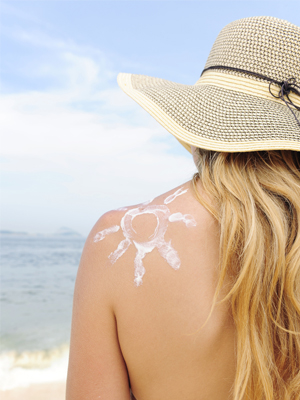While the climate changes from sub-zero to sunshine, you need to adjust your skin care regimen to suit the change of seasons (and the dynamic needs of the skin).
Cleanse and exfoliate
In the summer, you’re subjected to more dirt, oil and impurities on the skin (since we tend to perspire more and wear heavier sunscreens and makeup that can readily clog pores). That said, skin will need a more thorough cleanse. Try one of the new facial cleansing brushes help to give a deeper clean compared to washing with your hands or a face cloth. We like Garnier Nutritioniste Skin Renew Brusher Gel-Cleanser.
Exfoliate once a week to remove dead skin cells that clog pores (since clogged pores can actually make pores appear larger). Remove the dead skin cells and voilé — a radiant complexion.
Moisturize
Now that we have said goodbye to winter, you should also bid adieu to the body butters and oil-based creams since they can feel heavy on the skin. Because we sweat much more in the summer heat, go for a light-weight water based moisturizer or lotion. The oil free moisturizer will not feel heavy or sticky on your skin.
Apply sunscreen
Of course this is an important rule all year round, but sunscreen is paramount in summer since the days are longer and we spend far more time outside.
Sunscreen is important for all skin tones to protect from damage caused by ultra violet (UVA & UVB) rays. If you’ve avoided using sun block until now because you detest the white pasty look and feel, there is a variety of non-greasy, light sprays and gels from which you can choose. You’ll want a sunscreen with broad-spectrum or multi-spectrum protection for both UVB and UVA.
Ingredients with broad-spectrum protection include ingredients like benzophenones (oxybenzone), titanium dioxide and zinc oxide. If you’ve always wandered what the SPF number stands for like 15 or 45, it means the amount of time that should elapse before you re-apply. A teaspoon size should be applied to the face and remember often neglected areas like the ears, neck and back of the hands.
Remember that last year’s left over stock should be discarded since sunscreen ingredients are often volatile and can be degraded.













